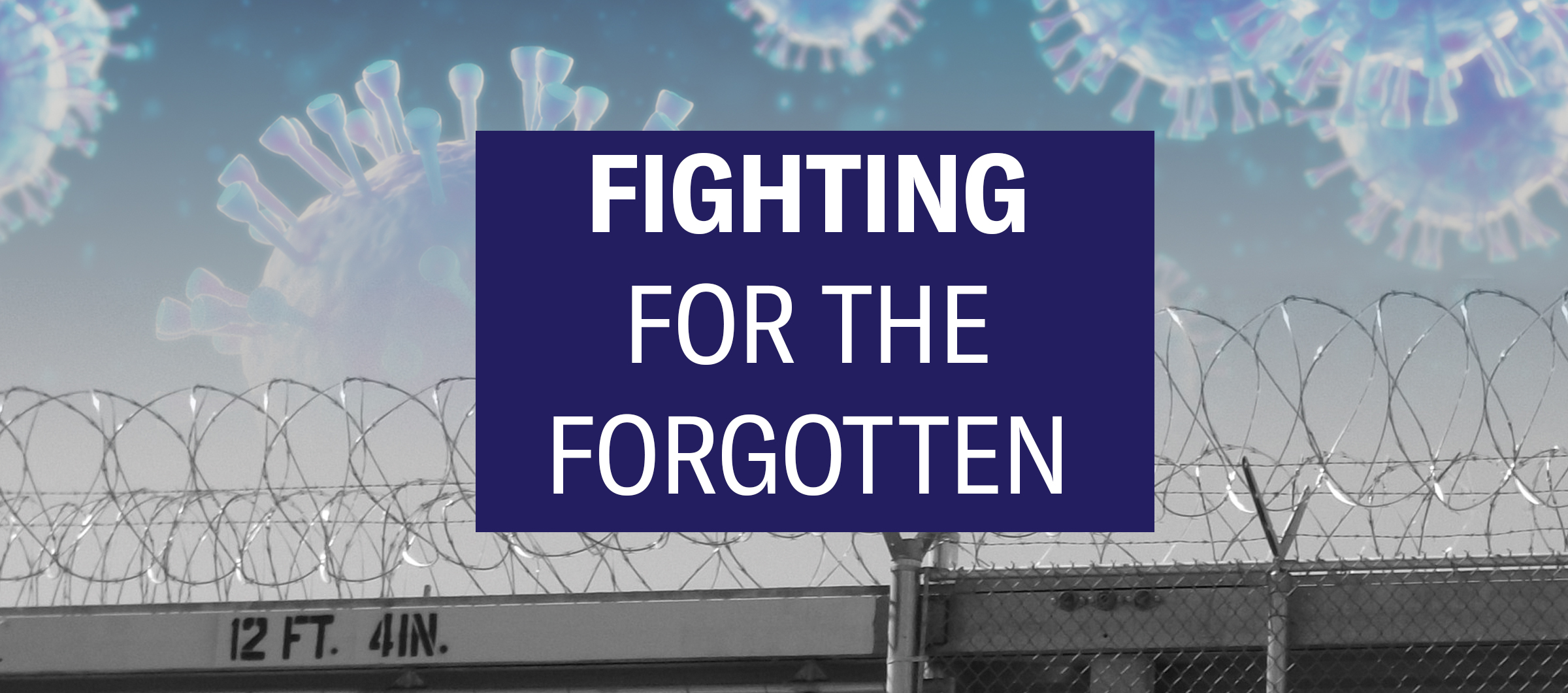In the back of an ambulance, during the nearly forty-minute ride from Springer Correctional Center (SCC) to Raton Medical Center, Kandyce Jaramillo stopped breathing multiple times. She was in the midst of an asthma attack so severe that she nearly had to be intubated upon arrival at the hospital. Luckily, the 35-year-old mother of six regained her breathing after a doctor injected her with medication. She was released the next day.
That was on February 10, before New Mexico had a single known case of coronavirus.
Before the respiratory disease reached global pandemic status, Kandyce, who is incarcerated for simple drug possession, frequently worried about her health. Now that New Mexico has over 23,000 known cases of the virus, and jails, prisons, and immigration detention centers have become hotspots for the infection, Kandyce lives in a constant state of fear. Already highly vulnerable to serious illness or death if infected, living behind bars, where healthcare is notoriously substandard and people live in close quarters, puts her at even greater risk.
“I just put in another three sick calls and they still haven’t seen me yet,” said Kandyce. “It’s getting harder and harder to breathe.”
“I just put in another three sick calls and they still haven’t seen me yet. It’s getting harder and harder to breathe."
Despite her constant struggle for air, SCC has denied her multiple recent requests for nebulizer treatment and a rescue inhaler.
“I’ve been crying a lot lately because there’s nothing that I know I can do for any of this and I just have to continue on asking them for help even though I’m obviously not their priority,” Kandyce said. “The only time they would see me is if I would drop on the floor or stop breathing again. But I don’t want to stop breathing again.”
Though SCC does not yet have any known cases of coronavirus, Kandyce fears that if the virus enters the facility, it won’t be long before it spreads rapidly. One need only look at Otero County Prison Facility, where 80 percent of people tested positive in late June, or Otero County Processing Center, a privately-run ICE detention center with over 150 cases at last count, to see how infectious spread is likely to play out.
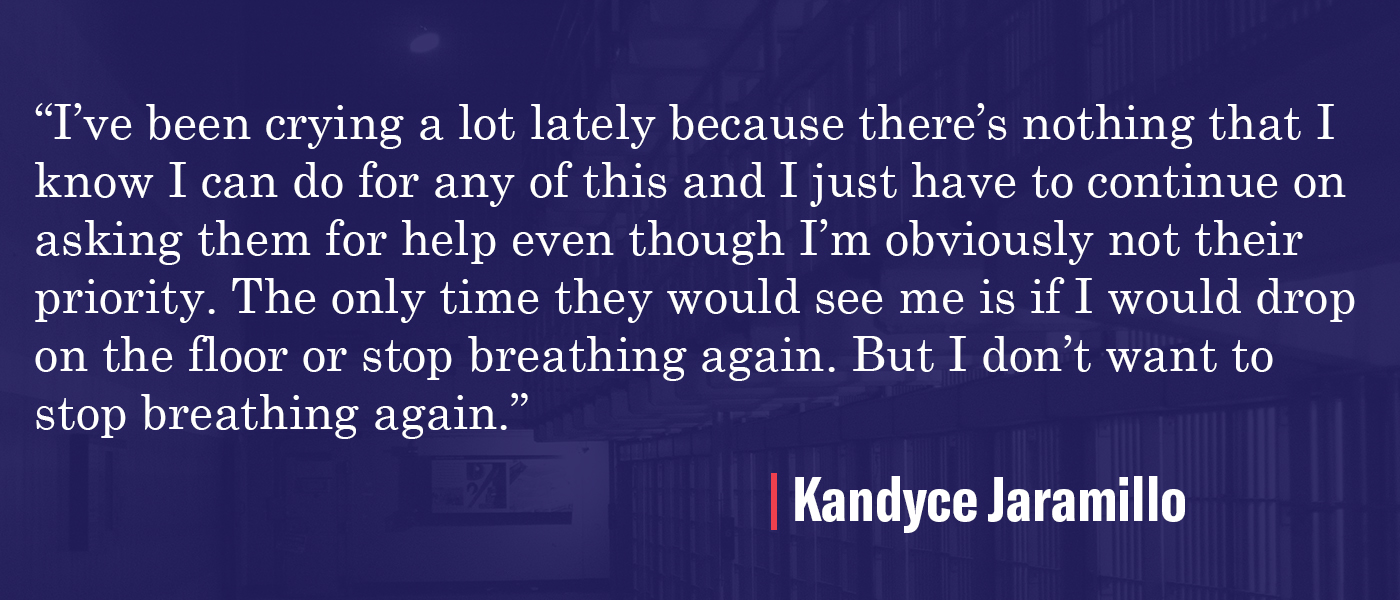
“Kandyce is serving a sentence for drug possession, a conviction that reflects her longtime struggle with addiction,” said Lalita Moskowitz, ACLU of New Mexico staff attorney and lead counsel on the affiliate’s efforts to protect incarcerated people from coronavirus. “She poses no danger to her community. But her current environment poses a life-threatening danger to her.”
Michel Luis Fuente knows all too well the fear Kandyce feels. After the 33-year-old fled Cuba and sought asylum in the United States in June of 2019, he was immediately detained in Otero County Processing Center (OCPC), where he languished for a year. He too suffers from severe asthma and is highly vulnerable to coronavirus.
“It is one thing to say that this country respects human rights, but inside (the detention center) they don’t,” said Michel. “You could be dying in there and all they tell you is ‘you should have stayed in your country.”
“You could be dying in there and all they tell you is ‘you should have stayed in your country.”
At OCPC, Michel lived in a dormitory with 49 other people who shared four sinks, four toilets, and four showers amongst them. They slept in bunk beds roughly three feet apart from each other. Not only was social distancing impossible, but cleaning and hygiene products were in short supply. Many guards did not even wear masks or gloves. Without any way to properly protect against the virus, and knowing that his asthma made him vulnerable to infection, Michel says he fell into despair, crying every day out of fear of dying.
The perfect storm
When coronavirus first hit the United States, public health experts warned that jails, prisons, and ICE detention centers were tinderboxes for infection that would inevitably flare up and spread out into surrounding communities. People are packed together in tight quarters and cannot keep the recommended six feet of distance from one another. Many people are already in compromised health, making them more vulnerable to infection, and medical resources are limited. Sanitation in these facilities is poor and hygiene products remain in chronic short supply.
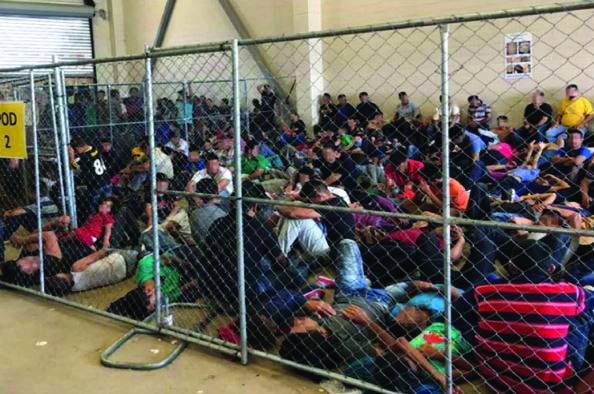
The conditions are so ripe for infection that back in March, an epidemiology professor at Yale School of Public Health, Greg Gonsalves, told the New Yorker, “If you wanted to set up a situation that would promote rapid transmission of a respiratory virus, you would say prison: it’s close quarters, unsanitary, individuals in frequent contact.”
The ACLU national office and ACLU affiliates across the country, having long advocated for people behind walls, knew public health experts were right to be concerned. Not only are these facilities hotbeds for the spread of disease, but policymakers are often quick to look the other way when poor people and people of color—who are disproportionately locked up—are in danger.
"...Policymakers are often quick to look the other way when poor people and people of color—who are disproportionately locked up—are in danger."
Here in New Mexico, and throughout the country, the ACLU took swift action, writing letters to governors, correctional departments, congressional delegations, and individuals prisons, jails, and ICE detention centers, urging them to immediately develop plans to mitigate the risk of coronavirus for incarcerated people and surrounding communities. We advised them to immediately reduce the population in detention facilities by releasing the most vulnerable; to provide soap, hand sanitizer, and cleaning supplies; and to ensure scientifically-based protocols for testing and treatment were in place.
Our pleas were largely met with silence and indifference. But we didn’t give up. When elected officials and wardens didn’t take our warnings seriously, we dug in our heels and redoubled our efforts.
Marshalling all of our resources
Our legal team sought every remedy to release as many people as possible from New Mexico’s jails, prisons, and detention centers, including filing habeas petitions on behalf of medically vulnerable people. Through these petitions, we have been able to help individuals challenge the conditions of their confinement as unconstitutional and fight for release.
Our first habeas petition, filed in early April, demanded the release of Yesenia Evans, who was detained in Santa Fe County Jail on a non-serious probation violation. Yesenia suffers from a rare autoimmune disease known as Systemic Sclerosis that impacts the function of her digestive system, heart, lungs, and kidneys. The petition argued that confining Yesenia, whose medicalcondition renders her particularly vulnerable to coronavirus, amounted to deliberate indifference to excessive risk of serious harm and violated her constitutional right to be free from cruel and unusual punishment.
“For Yesenia, it was a real possibility that a minor offense could turn into a death sentence,” said Moskowitz. “Each day she spent locked up was a day in which her life was in jeopardy. We knew we had to do everything in our power to get her out.”
Days later, the First Judicial District Attorney agreed to Yesenia’s release. Yesenia was allowed to return home to her family where she could take adequate precautions to protect herself from the virus.
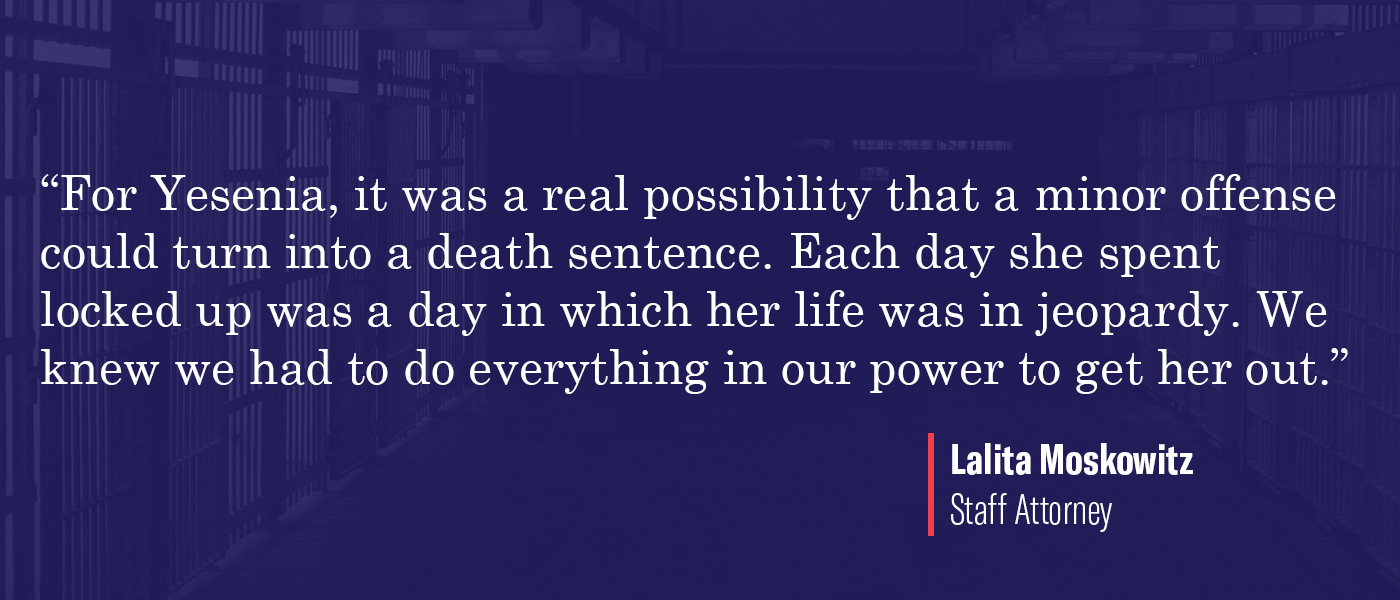
Our work didn’t stop there. On the heels of our petition to release Yesenia, the legal team filed habeas petitions on behalf of three immigrants, all with underlying health issues, detained in Otero County Processing Center. Following our lawsuit, two of them, including Michel have been released.
“Otero County Processing Center has a history of abuse and medical neglect,” said Joachim Marjon, immigrants’ rights attorney at the ACLU of New Mexico. “In normal times, we can’t trust the facility to protect people, let alone in times of crisis. The people detained there are living in agony, wondering if they will ever make it out or die inside the walls.”
“In normal times, we can’t trust the facility to protect people, let alone in times of crisis."
While we’re grateful that three of our clients are no longer living in acute danger, we have a long way yet to go. Thousands more remain trapped in dangerous conditions, and our society’s indifference to the plight of the detained and incarcerated is a strong current to swim against.
A similar habeas petition that we filed to secure Kandyce’s release from Spring Correctional Center was denied on technical grounds and is currently in appeal. Our attempts to secure the release of a much larger class of people have also been difficult. In mid April, the ACLU of New Mexico, along with the New Mexico Law Office of the Public Defender and New Mexico Criminal Defense Lawyers Association, took our fight to the New Mexico Supreme Court, arguing that the state had deliberately and intentionally put people at risk by not substantially reducing the prison population. Our hope was that the Court would order the release of medically-vulnerable people, those held on parole and probation violations, and those nearing release. The Court, however, denied our petition on the grounds that we could not prove the State’s actions were “deliberate and intentional.”
The ruling was especially disappointing given the ample evidence of the danger the coronavirus poses in correctional settings. At the time of the ruling, the virus had already spread throughout facilities across the country and at least 13 other state court systems — including those of Kentucky, Massachusetts, Pennsylvania, Alabama, Maine, Montana, New Jersey, Utah, Ohio, South Carolina, Michigan, Hawaii, Washington, and the District of Columbia—had already taken steps to limit incarceration to mitigate viral spread.
Predictably, the number of positive cases amongst incarcerated people swelled in New Mexico following the Supreme Court’s refusal to intervene.
We were frustrated, but undeterred. At the time of this writing, our legal team is preparing to take part in a second legal action aimed at securing the release of hundreds of people who pose no risk to society, but who face serious threats to their health behind bars.
The Fight Ahead
The appalling conditions that have led to the explosion of coronavirus infections inside our jails, prisons, and detention centers are symptoms of larger systemic problems. As we continue our battle to protect incarcerated people during this pandemic, we are equally determined in our efforts to fundamentally change the criminal legal system and civil immigration detention policies that fuel mass incarceration in our nation. We simply can’t put a bandaid on a bullet wound and expect it to heal.
For too long, we’ve tried to punish our way out of every societal problem, filling our prisons to the brim rather than tackling the root causes of crime.
Detaining people in prison-like conditions for fleeing violence and persecution in their home countries or seeking to make a better life for their children in the United States has always been unjust and inhumane. Equally unjust is our nation’s treatment of its own citizens. For too long, we’ve tried to punish our way out of every societal problem, filling our prisons to the brim rather than tackling the root causes of crime. Mass incarceration has only served to fuel racial injustice, tear families apart, and trap entire generations inside the criminal legal system. And yet none of it has made us any safer.
In fact, instead of improving public safety, COVID-19 has shown us that our addiction to incarceration is an urgent threat to public health.
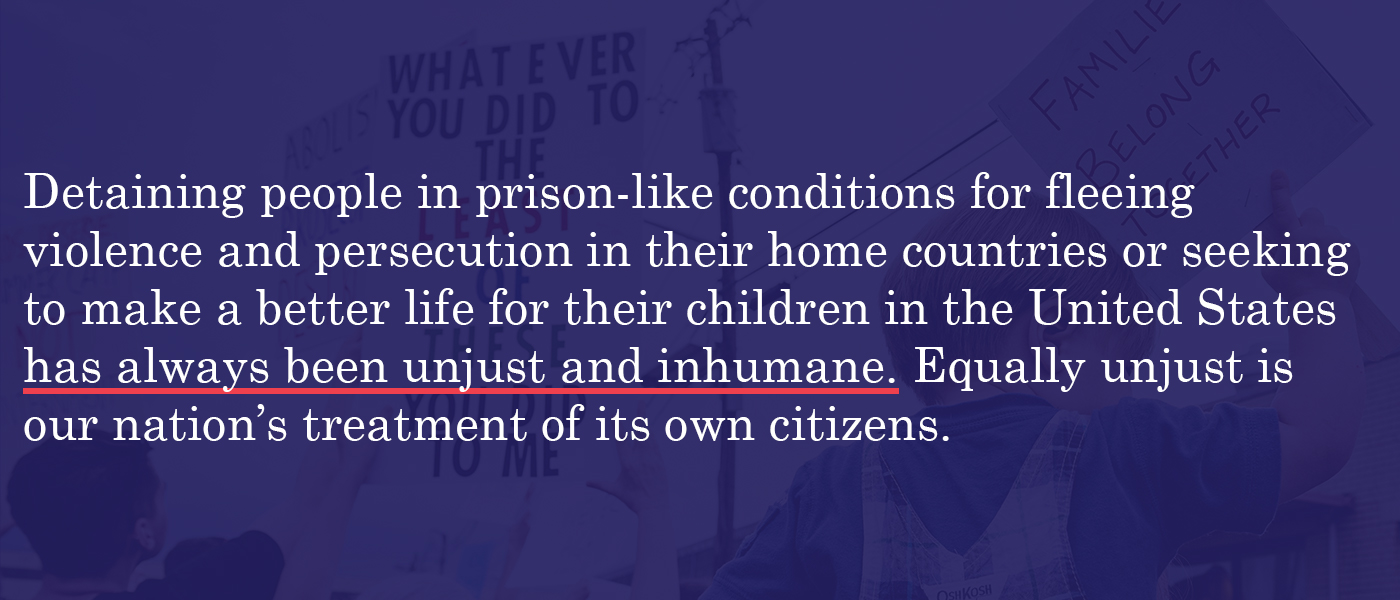
There is a clear path forward. We must immediately release people from jails and prisons who are medically-vulnerable to the virus, nearing release, or held on non-serious offenses. We must also immediately allow immigrants—the overwhelming majority of whom should not be detained in the first place — to stay with family or friends as their civil immigration cases proceed.
Beyond that, we can stop making the same mistakes going forward. It’s time we dismantle the immigration detention machine and mass incarceration apparatus and build more humane alternatives. The pandemic has made it impossible to ignore that these systems, by design, only lead to human suffering and misery.
These systems are how people like Kandyce, who needed substance abuse treatment and support, not incarceration, and people like Michel, whose only “crime” was seeking asylum, end up behind bars and fearing for their lives. Even though Michel is now far from OCPC with his family in Arizona, he still lays awake worrying about the friends he left behind.
“I cannot sleep at night,” said Michel. “I suffer because I know what they are going through. Only someone who was in there knows what they are suffering. The things they do. I don’t know how to stop this.”

